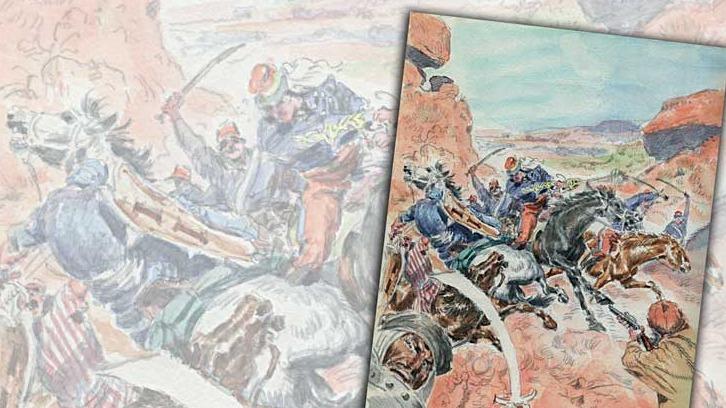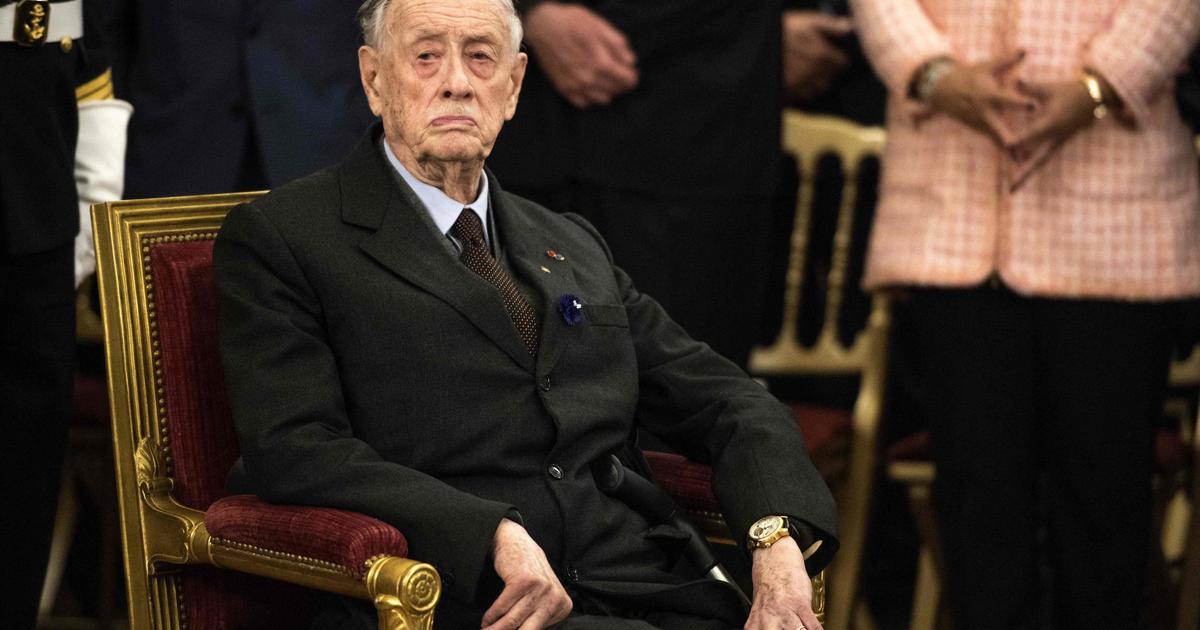He is bored at Pont-à-Mousson.
Garrison life really isn't for him.
There is indeed a group of happy second lieutenants including the ineffable Duke of Fitz-James, alongside whom Charles takes part in the festivities.
He himself gives dinners in Nancy, where he has kept the ground floor of Colonel de Morlet's house.
The admirers of young officers are not shy, but what, spend your whole life stumbling around and being bored?
For a dueling matter, Fitz-James was placed on layoff by retirement.
Charles envy, wonders how he himself could get this sanction.
To discover
Discover the “Best of the Goncourt Prize” collection
Read alsoBy what miracle will Charles de Foucauld become a saint?
On July 12, 1880, he was arrested for fifteen days for walking around Pont-à-Mousson in civilian clothes with a so-called bad woman.
While he is serving his punishment, the regiment is designated to replace the 10th Hussars in Sétif.
On October 18, a first detachment must leave the barracks.
Charles is one of them.
Colonel de Poul, who is keeping an eye on him, inspects his luggage and notices that it is a little too bulky for a single man.
He forbids her to take her “concubine” to Algeria.
In a casual tone Charles replies that she is free to go wherever she pleases.
In Algeria, three times, he will refuse to obey this injunction.
He ends up getting the same punishment as Fitz-James.
Guilleret, Charles went back to France and settled in the vicinity of Evian, where he rented a house with a view of the lake and hired a valet.
But when he learns that his regiment must intervene on the Tunisian border, which is constantly violated by Kroumir tribes, he asks for his reinstatement.
She is accepted.
However, he will have to join another unit, responsible for putting down an insurrection south of the Hauts Plateaux.
This is led by Bou Amama, a marabout who threatens all French settlements.
As much as Charles dragged his feet in garrison, on maneuvers on the Hauts Plateaux since July 22, 1881, he was to be tireless in the field.
He loves the men he commands and spares them as much as possible.
But he himself does not shrink from any risk.
The uprising of Bou Amama having been subdued, Charles finds himself again in garrison.
He yawns.
Antoine de Villambrosa, who resigned from the army, intends to go to Mesopotamia.
Why shouldn't Charles go with him?
On January 28, 1882, Foucauld wrote two requests.
In one, he submits his resignation.
In the other, he aspires to become a reserve officer.
To be able to serve in case of war.
They are accepted.
But in the meantime Antoine informs her that he is going to marry an American and that the Orient will wait.
Charles plans to cross North Africa, then go to Cairo and perhaps push on to Arabia.
In the meantime, he is studying Arabic, writing to a former history and geography teacher to obtain documentation.
The latter pointed out to him a specialist in Arab history, Mr. Masqueray, director of the Ecole Supérieure des Lettres in Algiers.
In France, his family, worried about his largesse, launched a curatorship procedure so that legal advice could be given to him.
On April 25, 1882, Georges de Latouche, his cousin, was appointed curator.
Charles grumbles, but does not storm.
At the end of May, he goes to Algiers.
He will bond there with Oscar Mac Carthy, director of the library and president of the Geographical Society of Algiers, who advises him to explore Morocco.
It's no longer about laziness.
Charles is trained in many disciplines necessary for his new profession: traveler-explorer.
He learns a little Berber and Hebrew because Mac Carthy recommended him to pretend to be a rabbi, Christians being tolerated only along the boulevard des embassies, between Marrakech, Fez and Mostaganem.
They can only engage at the risk of their lives in the rest of the country, divided into lands where the sultan reigns through his caïds and regions dominated by tribes, who submit to no one.
He also introduced him to the one who will serve as his guide, a real rabbi, Mordecai Abi Serour.
He has collaborated several times with the Geographical Society.
On June 10, 1883, he took the train with Mordecai to the border station of Lalla Marnia, then decided to reach Morocco by sea and landed in Tangier.
The cover of
Figaro Hors-Série
Charles de Foucauld, a voice in the desert Private collection-Color by Klimbim et Fond
Charles de Foucauld, a voice in the desert
, 164 pages, €12.90, available on newsstands and Figaro Store.









